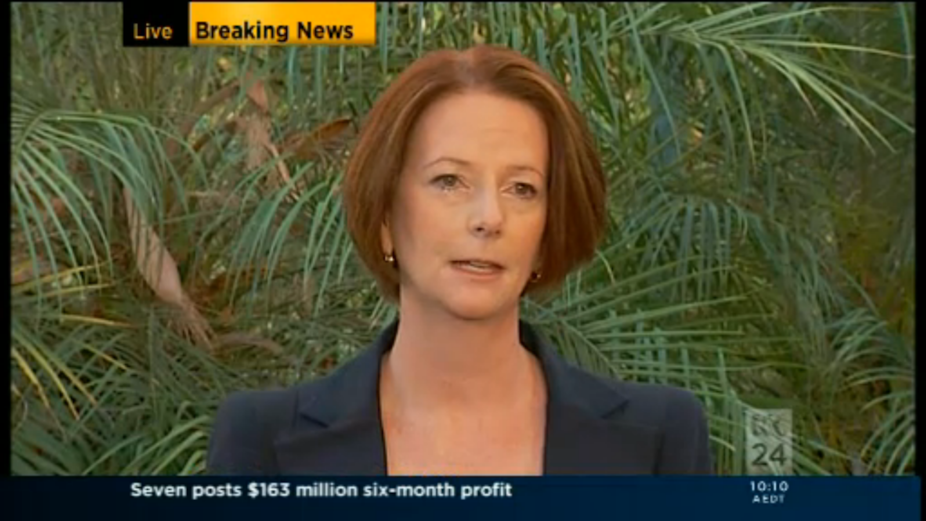The leadership contest between Julia Gillard and Kevin Rudd is largely a clash of personalities and a raw struggle for power, and there is essentially little policy difference between them.
But should Kevin Rudd return to the position of Prime Minister, there is the potential for some changes to policy, given the occasional hints Rudd has indicated in some of his past and recent statements.
One of the most prominent recent policy spats has been over the proposed poker machine reforms. Independent MP Andrew Wilkie notably ended his pledged support for the Gillard Government over what he perceived was a weak compromise on tackling problem gambling. Rudd is keen to take stronger action on the pokies, and therefore shore up support from Wilkie. That said, this would cause some consternation among Labor MPs in marginal seats under pressure from the gaming industry.
Rudd has previously warned that Labor was moving too far to the right on asylum seekers, and so may seek a deal with the Greens to permanently return to onshore processing of asylum seekers. However, this will do little to defuse the issue, as this position will continue to be relentlessly attacked by the Opposition.
While the carbon tax legislation is set to be implemented from July, Rudd may face pressure from various industries, such as the coal, steel, power and mining industries for greater compensation. This could either come through a lower set price for carbon, or great tax credits or concessions.
There is potential that Rudd could fold under a concerted campaign to modify the carbon tax, as was the case with the mining tax. He may also increase support for the car industry, and potentially seek greater government subsidies or tax concessions for manufacturing as a whole.
Health reforms may be also subject to review, with Rudd possibly wanting to attempt to restart the negotiation process with the conservative state governments, in order to get greater coordination in allocating health funding.
Foreign and defence policy would likely see no substantial changes. Rudd would continue to take a strong personal influence over foreign affairs, as he did when Prime Minister.
Overall though, the major policy direction of Labor would remain much the same under either Rudd or Gillard.
Either leader would attempt to push the government’s main potential strength, which is the relatively successful performance of the Australian economy, with its comparatively low level of unemployment, inflation, and healthy economic growth, largely due to the Asian-driven mining boom. Bringing the budget back into surplus would remain a key policy goal, with the political strategy of attempting to expose the inconsistencies in the Opposition’s fiscal position.
The fundamental political failing of Labor has been its inability to sell this record of economic management, and translate this into wider political popularity, as has been reflected in its continually dire position in the opinion polls.
If Rudd is returned, there may be a brief “bounce” of support, which may lift Labor’s primary vote. It remains doubtful, though, that Labor’s leadership tensions and instability will fade, regardless of the outcome of Monday’s ballot.
Ultimately, personality and power seems set to override any substantial policy debate in Australian politics.

